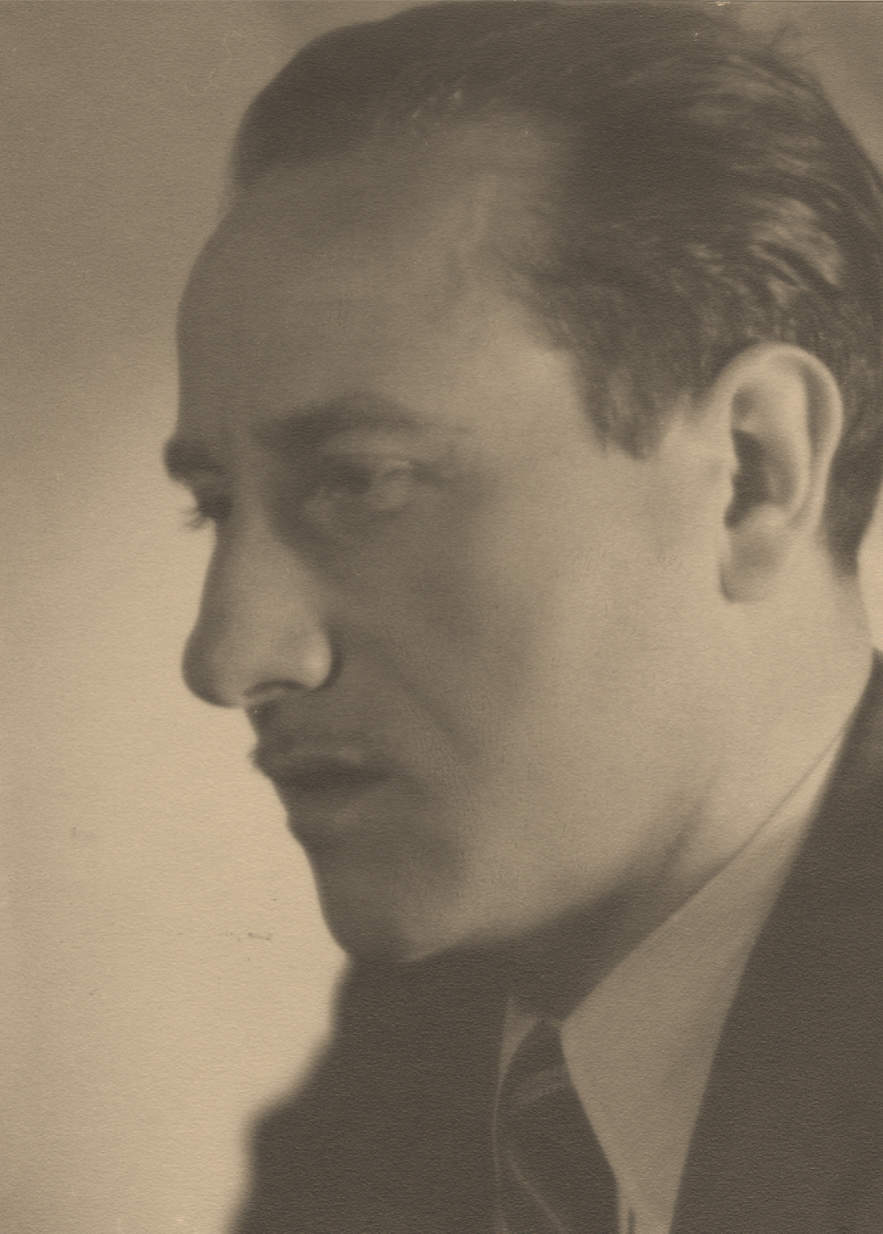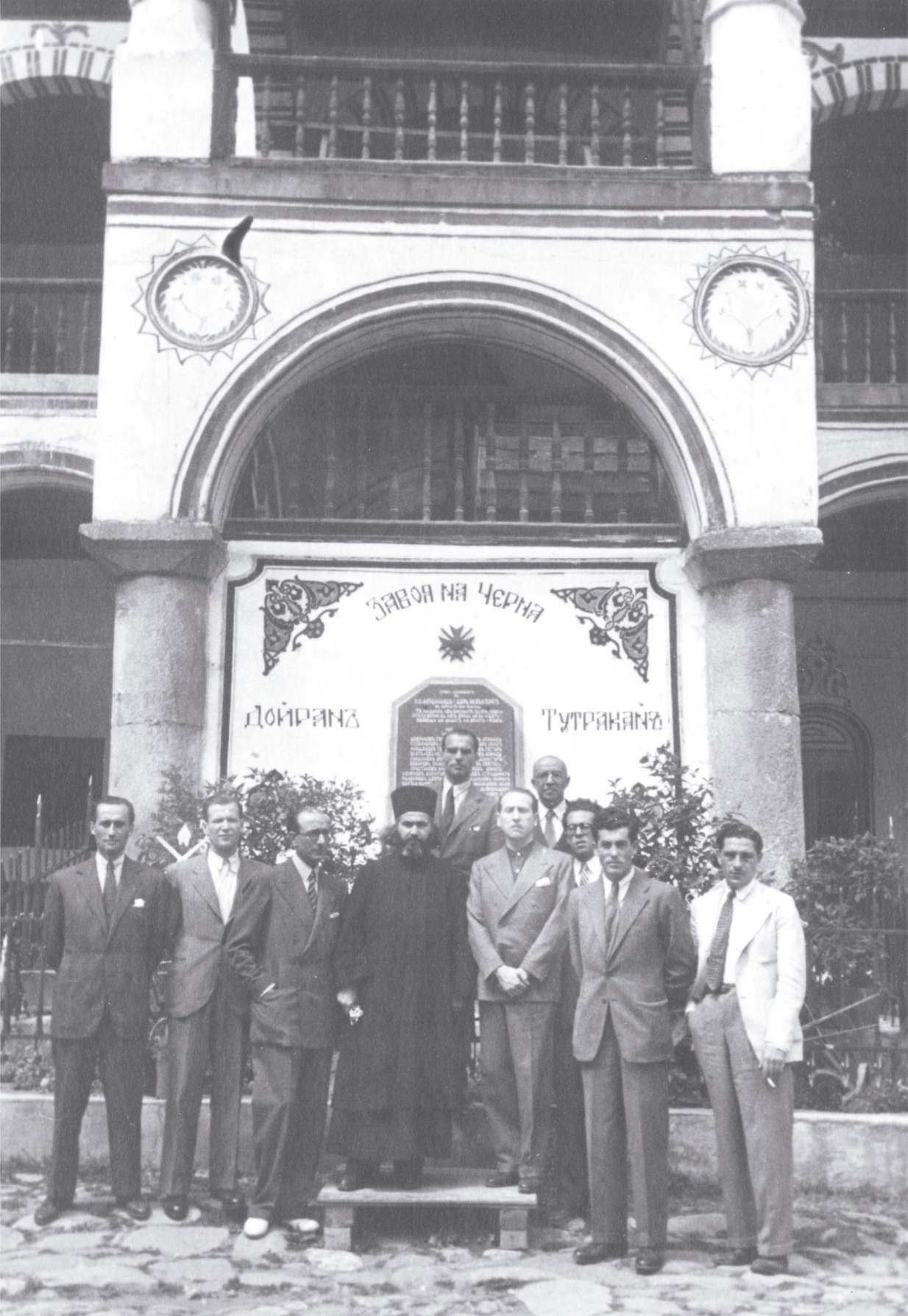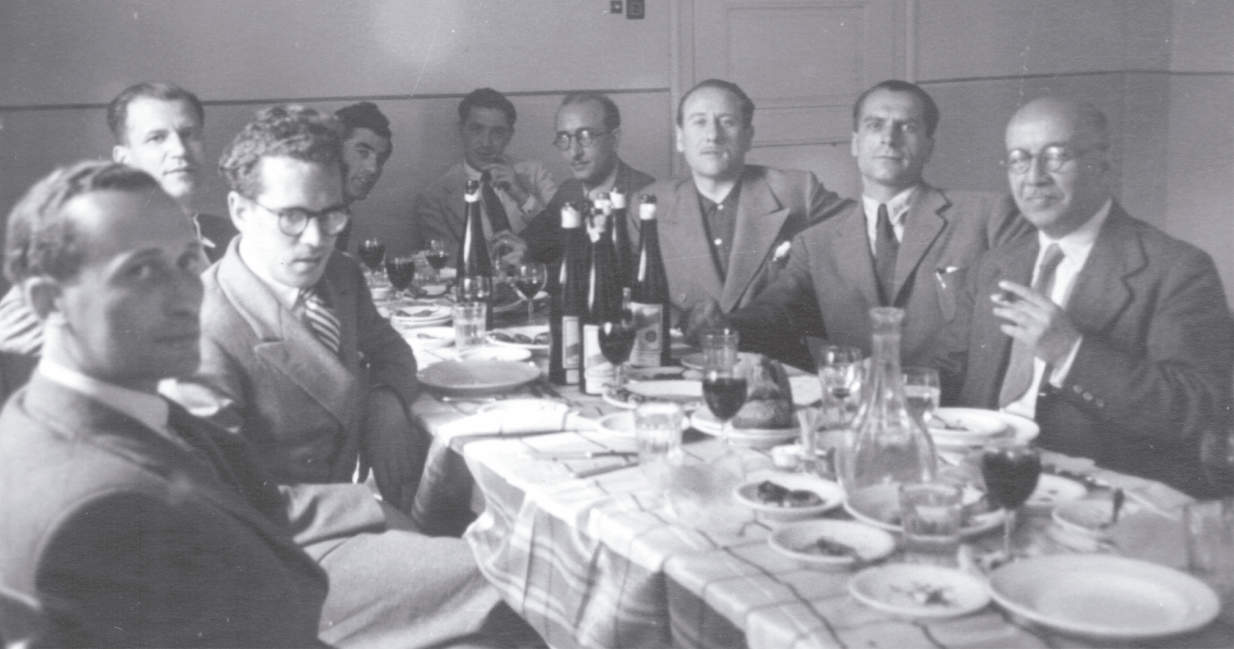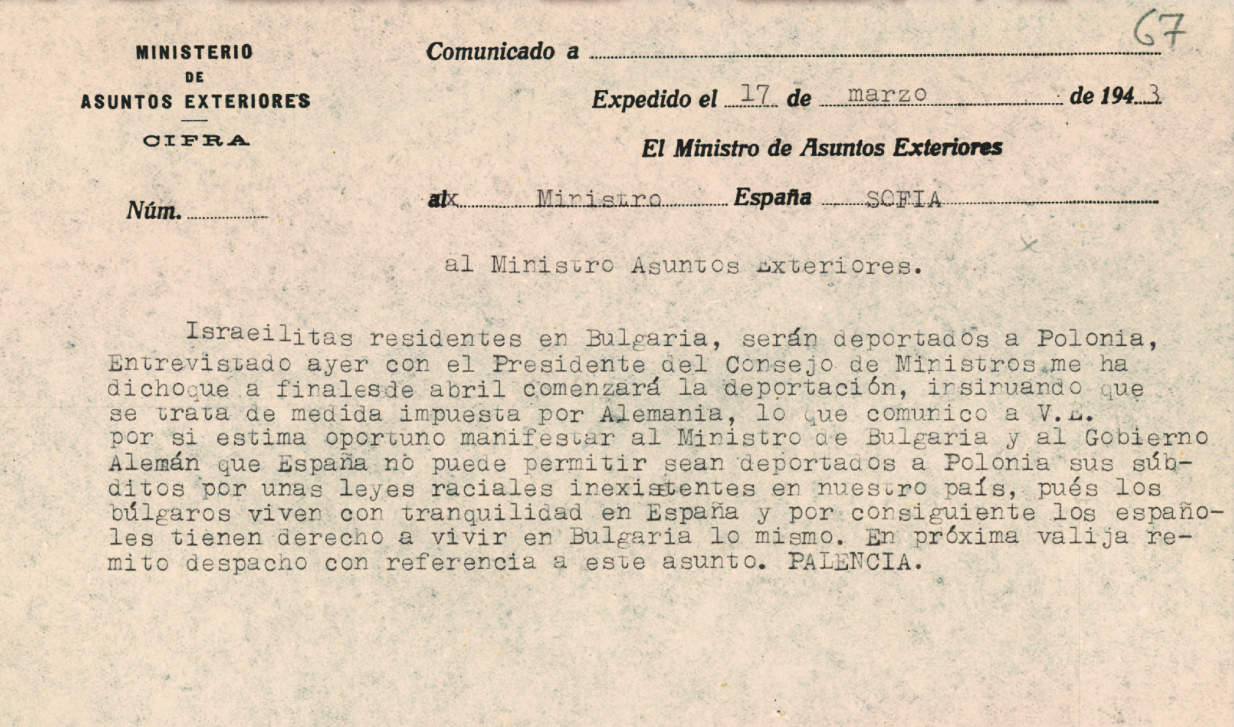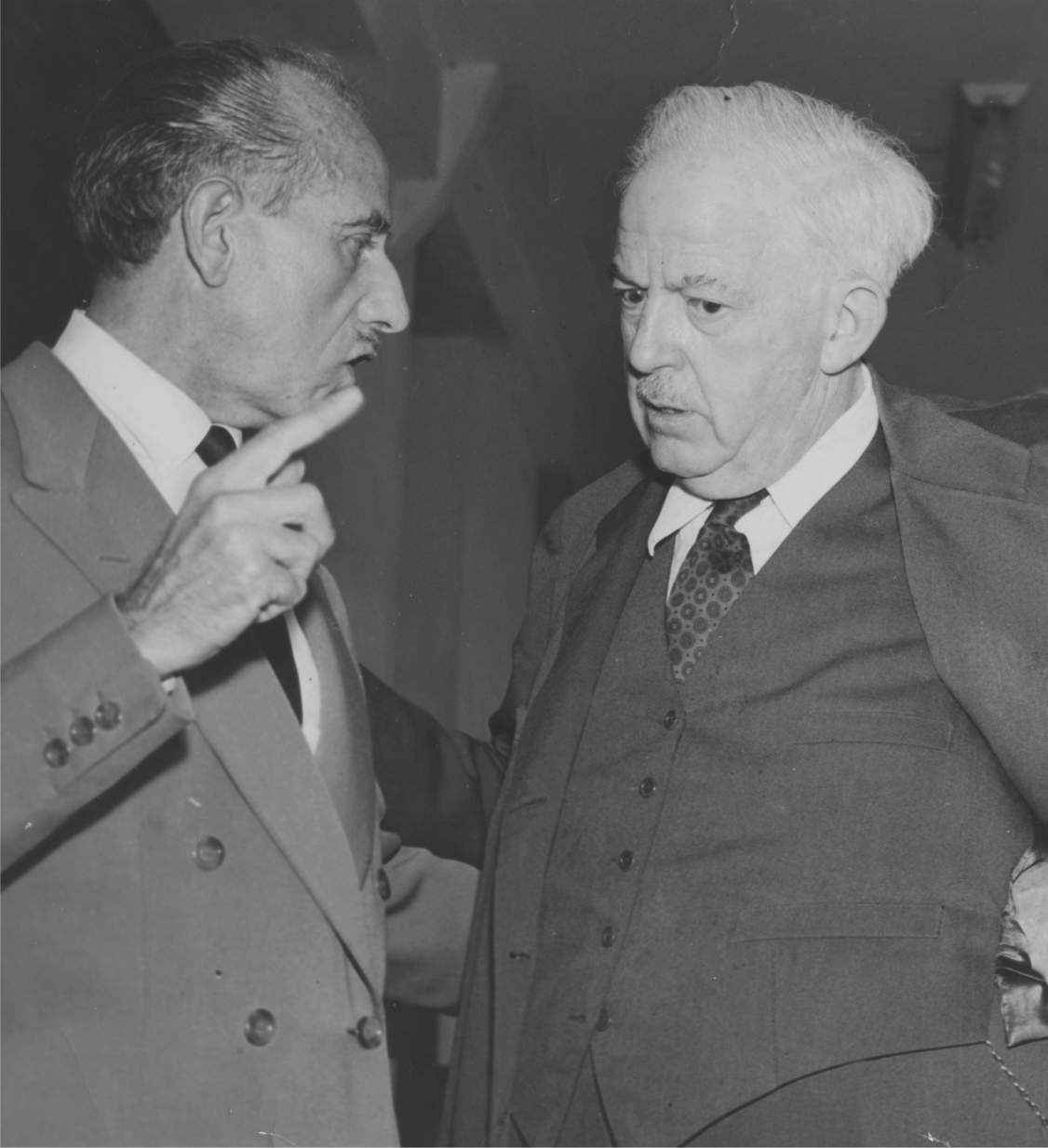CONSUL AND CHARGÉ D’AFFAIRES
(ATHENS AND SOFIA, 1941-1944)

EDUARDO GASSET Y DÍEZ DE ULZURRUN
Confidential mission
Eduardo Gasset y Díez de Ulzurrun, Count of Peñarrubias (1907-1996) was the son of Rafael Gasset y Chinchilla (editor of the newspaper El Imparcial and nine times a minister under Alfonso XIII) and nephew of the philosopher José Ortega y Gasset.
A 34-year-old bachelor with eight years of experience in the Diplomatic Corps (he entered the same year as Ángel Sanz Briz), he was stationed at the Embassy in Rome before being sent, on 15 April 1941, to the Legation in Athens to replace the ailing José María Doussinague.
Anticipating the "black future that will come all too soon" he asked Madrid — albeit unsuccessfully — to repatriate the Spanish Sephardim in Salonika, well as to send food to combat the nationwide famine in Greece.
Between July 1942 and March 1943, Gasset had to intervene to obtain the freedom of several detainees, and the return of their confiscated property.
He also managed to provisionally avoid the deportation of two Spanish Jews: Dudun Revah, a widow with a paralytic son, and Lina Capuano, who had been left alone with two children after her husband was deported.
In April 1943, Altenburg, Minister Plenipotentiary of Germany, told Gasset that according to reports from Berlin, Madrid was ignoring its Jewish nationals in Salonika, and they were to be deported to Poland along with all the other Jews. Troubled because this would mean sending them to their deaths, Gasset answered that since he had received no orders to the contrary, it was his duty to continue providing them with assistance.
Because he lacked direct communication with Madrid since he was required to send his telegrams through Reich channels, Gasset discovered — confidentially, from Georg Vogel, Altenburg's counsellor — that his requests for help had been neutralized.
In order to get around these German controls, he became personally, audaciously involved in trying to stop the deportation of Spanish Jews from Salonika, and achieve their repatriation.
In secret, he used a Spanish merchant marine captain as an undercover diplomatic courier. Gasset sent him to the Spanish Legation in Sofia — where Gasset had a good contact, Julio Palencia — with the confidential mission of delivering two cyphered telegrams to the Foreign Ministry. On 6 April of 1943 the first telegram, simply as a distraction, reproduced the first that had been intercepted. Hours later, the second telegram informed Foreign Minister Gómez- Jordana that half of all the Jews in Salonika had already been deported, and the Spanish Jews were next. He mentioned Italy's criteria of protecting its nationals, and included a copy of a dispatch from May 1941 to his former boss in Athens, Doussinague, stating that Jews with Spanish nationality were to be defended and protected just as if they were non-Jewish Spaniards. He knew that Doussinague himself, then Director-General for Foreign Policy, would be the first to read it. At the end, Gasset said that his "special envoy" would remain in Sofia until 12 April, hoping for a response on repatriation.
He received no answer but on 3 May Berlin informed the Embassy in Greece that Spain had communicated its intention to repatriate its Jewish nationals. Twenty days later, believing that he had achieved his goal, Gasset left Athens for his new post in the Sofia Legation. Nevertheless, in August these Jews were deported to Bergen-Belsen, although their lives were saved when they were evacuated in February 1944.
According to an SS communiqué of 22 June 1943, "the secret telegrams that he was sending to Madrid" showed "Eduardo Gasset's great interest in the fate of the Jews," warning, moreover that he was in close contact with that "known enemy of Germany, Doussinague."
Defending Jews was the main conflict with the local government that Gasset found when he arrived in Bulgaria. It cost Minister Julio Palencia his job, which meant that Gasset became the Chargé d'Affaires on 25 August, although he had been acting as such since 10 July.
Thanks to Gasset's intercession for Jewish Spaniards, at least five families were spared the application of anti-Semitic legislation. Moreover, he obtained a visa to get to Turkey for Paul Duroni, who had been ordered to leave the country.
On 30 October 1943, Gasset left Bulgaria, shortly after obtaining the freedom of the Legation's Chancellor, the Sephardic Spaniard Santiago Béjar.
After 40 years of service in the Diplomatic Corps, Gasset retired in November 1973, and died in Madrid at the age of 89.

 Loading
Loading

